“We try to bring a little soul, a little blues and jazz to the conversation,” says Darin Waters, co-host of “The Waters and Harvey Show,” on BPR. “We try to show that the life of a scholar doesn’t have to be, and isn’t, boring.”
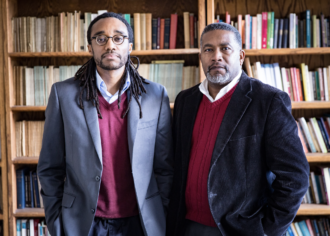

“We try to bring a little soul, a little blues and jazz to the conversation,” says Darin Waters, co-host of “The Waters and Harvey Show,” on BPR. “We try to show that the life of a scholar doesn’t have to be, and isn’t, boring.”

The Cat Fly Film Fest returns with live events after last year’s virtual gatherings. Plus, the Asheville Fringe Arts Festival offers a sneak peak, a South Carolina musician brings jazz to downtown Hendersonville, and a UNCA professor is on the move.

The South Slope Neighborhood Association has created an exhibit of six weatherproof panels that chronicle important topics and people from far before the current food and beverage boom.
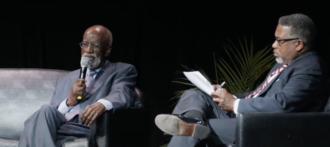
The speaker series is part of a three-phase process to create and empower a joint Asheville-Buncombe County Reparations Commission. Once formed, the commission would be tasked with making short-, medium- and long-term recommendations to repair the damage caused by public and private systemic racism.
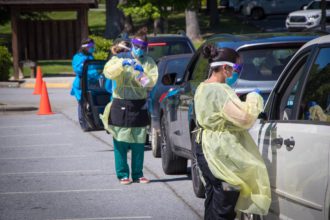
Amid internal upheaval following the sudden departure of CEO Antony Chiang, the COVID-19 pandemic and economic uncertainty, the $1.5 billion foundation held its first annual meeting virtually on Oct. 28. Highlights included funding updates and a discussion about organizational transparency.

Local historians have teamed up to commemorate the hundreds of lives lost during the construction of the Western North Carolina Railroad in the late 1870s.
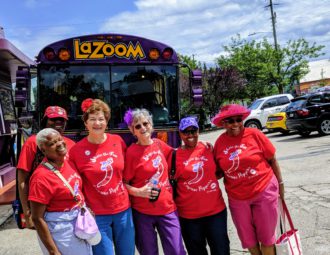
Local tourism operators are sensing a shift in the racial makeup of visitors to the Asheville area. Though the data don’t definitively support that conclusion — at least not yet — efforts to make Asheville a more welcoming and inclusive destination continue, as do fledgling initiatives to give minority tourism entrepreneurs a bigger piece of the industry’s pie.
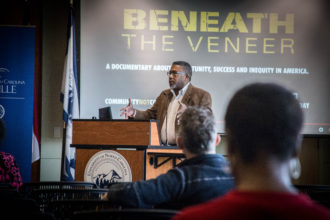
The African Americans in Western North Carolina and Southern Appalachia Conference will take place Oct. 18-20 in Asheville. The theme this year is “Making the invisible visible.”

The Asheville forum kicks off the IEI’s broader ReCONNECT NC initiative. Over the next three years, a series of six forums in four different cities will focus on the overarching theme of reconnection. Maggie Woods, policy and program manager at IEI, says people across the state are feeling out-of-touch and that this sense of detachment needs to be addressed at length.
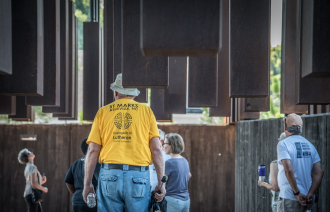
Students and scholars from Asheville, as well as representatives of several religious organizations here, are among those who have traveled to the National Memorial for Peace in Justice in Montgomery. The 6-acre site houses more than 800 monuments the organization has created, each indicating a county where racial terror lynchings occurred, including Buncombe.

On Oct. 21, the fourth annual African Americans in WNC conference wrapped up with a gala celebration of CoThinkk, a giving circle led by people of color to support work in Asheville and Western North Carolina.

As part of its summer Buzz Breakfast series, Leadership Asheville (a program of UNC Asheville) hosted “How will Asheville grow thoughtfully?” on July 26 at the Crowne Plaza Hotel. The event explored the public sector’s role in shaping and encouraging the city’s growth.

The third annual African-Americans in WNC conference brought speakers from Asheville and beyond to UNC Asheville and the YMI Cultural Center to explore how emerging historical research can shed light on present-day African-American culture and identity in the region.
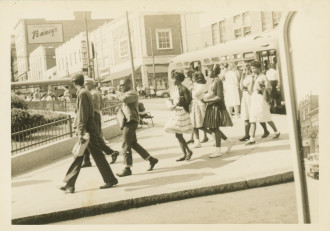
A selection of historic works by hobbyist photographer Isaiah Rice will move from UNCA’s library to be displayed at WCQS. The opening reception is on Friday, Oct. 7.

A slideshow of select photos by Rice will be debuted at the UNCA High Smith Student Union’s Alumni Hall Friday, Oct. 23.
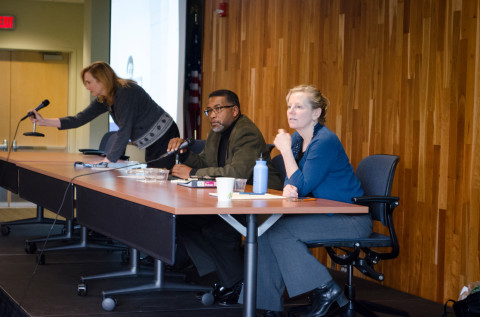
UNC Asheville and the YMI Cultural Center hosted the inaugural African-Americans in Western North Carolina conference on Thursday-Friday, Oct.23-24. The event, designed to discuss an overlooked historical narrative, included speeches by Asheville civil rights leaders and scholars from UNCA and other regional universities.
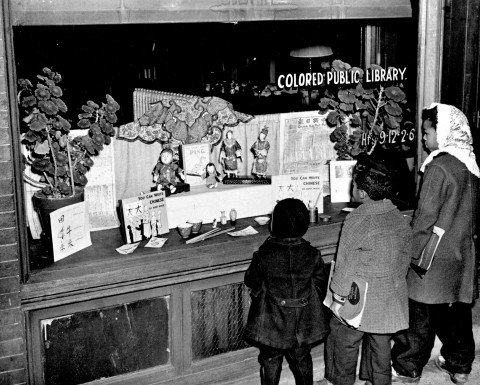
UNC Asheville and the YMI Cultural Center will host the inaugural African-Americans in Western North Carolina conference Oct.23-24. Organizers say the free event invites the public to hear scholars from universities throughout the region discuss a historical narrative that has been largely overlooked.
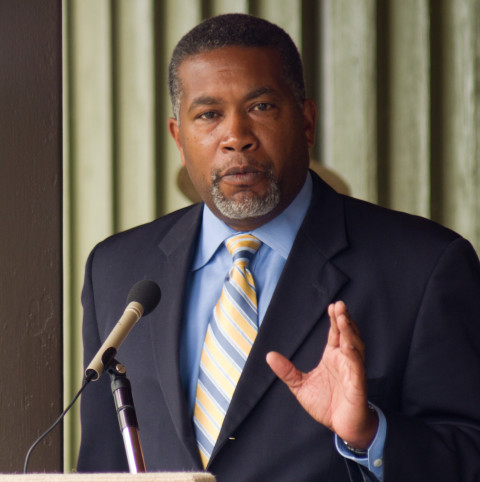
America continues to have a difficult time facing its past, especially when this requires taking an in-depth look at slavery. Slavery does not comport with our claims about our founding ideals. Thus, when memorializing the past, Americans are more comfortable with images that don’t glaringly highlight the country’s hypocrisy.
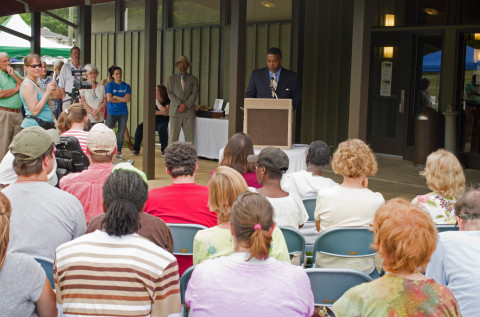
Nearly 150 years after the end of the Civil War, one of the era’s most important historical documents was displayed in Western North Carolina for the first time ever.
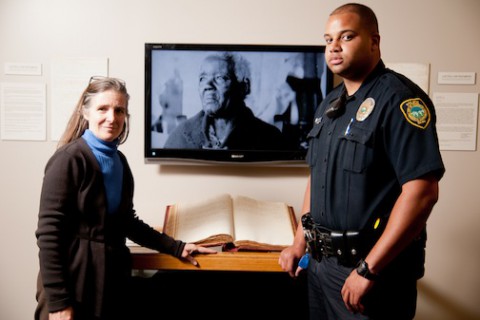
In Buncombe County, thousands of slaves toiled as cooks, farmers, tour guides, maids, blacksmiths, tailors, miners, farmers, road builders and more, local records show. And after mostly ignoring that troubled history for a century and a half, the county is now taking groundbreaking steps to honor the contributions of those former residents by making its slave records readily available online.